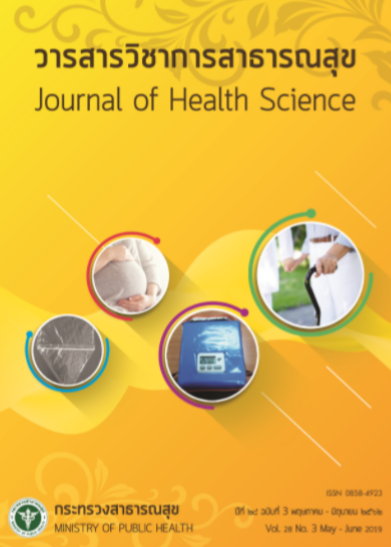Implementation of State-Civil Unity Policy to Create Village and Community Security from the Danger of Narcotic Drugs, 2016-2017: a Case Study in Bangkok, Thailand
Keywords:
policy implementation, state–civil unity, narcotics, participationAbstract
The government policy of “state–civil unity to create village/community security from the danger of narcotic drugs, 2016-2017” has the goal of prevailing over the problem of drug addiction in 81,905 villages/communities throughout the nation. The policy calls for a strategy and process of public engagement, with national oversight from the Office of the Narcotics Control Board (ONCB). The vision is that this strategy would create a cascade of action from the national to the regional, provincial, and district levels. The objective of This research was to analyze the implementation of such policy in Bangkok. It was a mixed-method research starting with a review of the existing documents for the period of 2016–2017. Primary data were collected by group interview with six key informants from the study areas. In addition, a cross–sectional survey was conducted in purposively–selected communities including interviews with 422 members of the general population. It was found that the study area had a local Drug Control Committee comprising of members from multiple sectors; and 65.0% of them were from government agencies. The principal implementing agency was the community development unit in collaboration with administrative offices. The activities were implemented according to the plan and projects based on the guidance and funding from the ONCB. Key activities included motivating the local residents to increase concern about the harm of drug addiction and learning prevention tactics. Based on the community survey, most residents (59.2%) were aware of the policy and the implementation; and two–thirds had participated in the implementation at a ‘moderate’ level. However, some residents were hesitant of becoming too involved out of concern for their personal safety. Based on the findings of this study, it seems that the government needs to continue to take the leadership role in drug control, employing a community–led approach starting from the ordinary people in the society.
Downloads
Downloads
Published
How to Cite
Issue
Section
License
Copyright (c) 2019 Journal of Health Science - วารสารวิชาการสาธารณสุข

This work is licensed under a Creative Commons Attribution-NonCommercial-NoDerivatives 4.0 International License.







